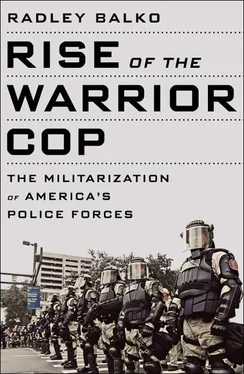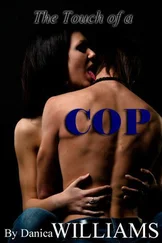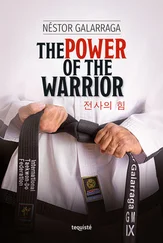Police officers today are a protected class, one no politician wants to oppose. Law enforcement interests may occasionally come up short on budgetary issues, but legislatures rarely if ever pass new laws to hold police more accountable, to restrict their powers, or to make them more transparent.
In short, police today embody all of the threats the Founders feared were posed by standing armies, plus a few additional ones they couldn’t have anticipated.
This isn’t to say we’re in a police state, a term that’s often misused. Generally speaking, we’re free to travel. We don’t face mass censorship. We still have habeus corpus. And the odds of any single person being victimized by a wrong-door raid, shot or beaten by a cop, or otherwise victimized by militarized police violence are slim to nil. But perhaps we have entered a police state writ small. At the individual level, a police officer’s power and authority over the people he interacts with day to day is near complete. Absent video, if the officer’s account an incident differs from that of a citizen—even several citizens—his superiors, the courts, and prosecutors will nearly always defer to the officer. If other officers are nearby, there are policies in place—official and unofficial—to encourage them to back one another up. Even if the officer does violate the citizen’s rights, the officer is protected by qualified immunity.
In the Introduction, I noted that this is not an anti-cop book. And it isn’t. Despite all of this, there are still good cops. A lot of them. But we have passed laws and policies that have elevated police officers above the people they serve. As Tim Lynch of the Cato Institute has written, you could make a good argument that police should be held to a higher standard than regular citizens. And you could make a good argument they should be held to the same standard. But it’s hard to conceive of a convincing argument that they should be held to a lower one. But that’s exactly what we’ve done.
Systems governed by bad policies and motivated by incentives will produce bad outcomes. Today, laws, policies, and procedures select for personalities attracted to aggressive, antagonistic policing; isolate police from the communities they serve; and condition police officers to see the people they serve—the people with whom they interact every day—as the enemy. We shouldn’t then be surprised when cops then begin to see a world divided between cops and their families… and everybody else.
Perhaps most distressing of all, not only does the military continue to provide surplus weapons to domestic police agencies, but thanks to the Department of Homeland Security grants, military contractors are now shifting to market resources toward police agencies. Worse, a new industry appears to be emerging just to convert those grants into battle-grade gear. That means we’ll soon have powerful private interests, funded by government grants, who will lobby for more government grants to pay for further militarization—a police industrial complex. It’s a threshold that will be difficult to un-cross.
No, America today isn’t a police state. Far from it. But it would be foolish to wait until it becomes one to get concerned.
1. Roger Roots, “Are Cops Constitutional?” Seton Hall Constitutional Law Journal 11 (2001): 685–757.
2. Ibid., p. 757.
3. Samuel Walker, Popular Justice: A History of American Criminal Justice (New York: Oxford University Press, 1998), pp. 25–28.
4. Roots, “Are Cops Constitutional?” p. 689.
5. Ibid., p. 692.
6. Timothy Egan, “Soldiers of the Drug War Remain on Duty,” New York Times, March 1, 1999.3.
Chapter 1: From Rome to Writs
1. The Rome narrative is from Sandra J. Bingham, “The Praetorian Guard in the Political and Social Life of Julio-Claudian Rome,” PhD diss., University of British Columbia (August 1997); Robert H. Langworthy and Lawrence F. Travis III, Policing in America, 3rd ed. (Englewood Cliffs, NJ: Prentice-Hall, 2003), pp. 40–42; and “Praetorian Guard,” Globalsecurity.org, available at: http://www.globalsecurity.org/military/world/spqr/army-praetorian-guard.htm(last accessed December 26, 2012).
2. The history of British policing through the nineteenth century is from Langworthy and Travis, Policing in America, pp. 54–58; and Erik H. Monkkonen, “History of Urban Police,” in Modern Policing, ed. Michael Tonry and Norval Morris (Chicago: University of Chicago Press, 1992), pp. 547–580.
3. Cicero quoted in William Blackstone, “Of Offenses Against the Habitations of Individuals,” ch. 16 in Commentaries on the Laws of England, book 4 (1753).
4. Olmstead v. United States, 277 US 438 (1928) (Brandeis, dissenting).
5. Semayne’s Case, 77 Eng. Rep. 194, 195 (KB 1603).
6. Richard Burn, Justice of the Peace and Parish Officer 87, 6th ed. (1758).
7. Case of Richard Curtis, 168 Eng. Rep. 67 (Crown 1757).
8. The Otis narrative is summarized from James M. Farrell, “The Writs of Assistance and Public Memory: John Adams and the Legacy of James Otis,” New England Quarterly 79 (4, 2006): 533–556; and James R. Ferguson, “Reason in Madness: The Political Thought of James Otis,” William and Mary Quarterly 36 (1979): 194–214.
9. John Adams, The Works of John Adams, Second President of the United States, vol. 2, app. A (Boston: Little, Brown & Co., 1850), pp. 523–525. The Adams quote also appears in Jedidiah Morse, Annals of the American Revolution (s.n., 1824), p. 225.
Chapter 2: Soldiers in the Streets
1. Engblom v. Carey, 677 F.2d 957 (1979). The US Court of Appeals for the Second Circuit ruled that the Third Amendment is incorporated to the states, that under the amendment National Guard troops are “soldiers,” and that tenants are included as “owners.”
2. See Tom W. Bell, “‘Property’ in the Constitution: The View from the Third Amendment,” William and Mary Bill of Rights 20 (2012); and Tom W. Bell, “The Third Amendment: Forgotten but Not Gone,” William and Mary Bill of Rights 2 (1, 1993): 117.
3. Robert A. Gross, “Public and Private in the Third Amendment,” Valparaiso University Law Review 26 (1, 1991): 215–221.
4. The history of quartering in England is from William S. Fields and David T. Hardy, “The Third Amendment and the Issue of Standing Armies,” American Journal of Legal History (Temple) 35 (4, 1991): 393–431.
5. Gary B. Nash, The Unknown American Revolution: The Unruly Birth of Democracy and the Struggle to Create America (New York: Viking, 2005), p. 44.
6. Fields and Hardy, “The Third Amendment and the Issue of Standing Armies,” p. 416.
7. John Philip Reid, Constitutional History of the American Revolution (Madison: University of Wisconsin Press, 1986), p. 194.
8. Oliver Morton Dickerson, Boston Under Military Rule, 1768–1769: As Revealed in a Journal of the Times (Chapman & Grimes, 1936).
9. Alexander Hamilton, “Federalist No. 8: The Consequences of Hostilities Between the States,” November 20, 1787.
10. The standing army debate is from Fields and Hardy, “The Third Amendment and the Issue of Standing Armies”; and from The Debates in the Several State Conventions on the Adoption of the Federal Constitution as Recommended by the General Convention at Philadelphia in 1787, 2nd ed., vol. 3, ed. Jonathan Elliot (Burt Franklin, 1888).
11. The Shays’ Rebellion narrative is from Christopher Collier and James Lincoln Collier, Decision in Philadelphia: The Constitutional Convention of 1787 (New York: Ballantine Books (1987), pp. 12–13.
Читать дальше












